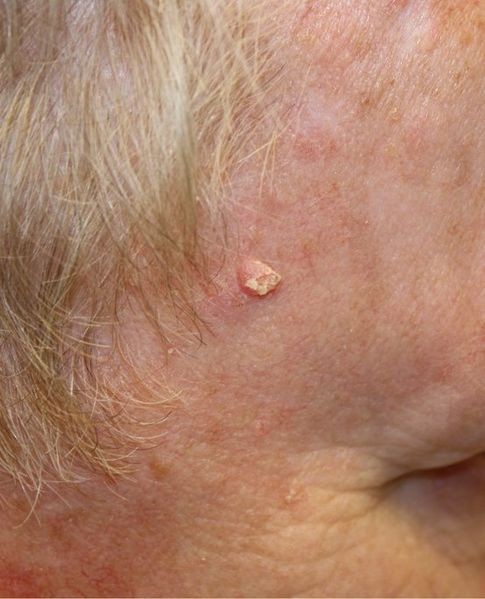
One class of pain relievers may reduce the risk of one type of skin cancer, squamous cell carcinoma, when taken by mouth. When researchers reviewed data from nine studies they found that these drugs may reduce the risk of squamous cell carcinoma by 18%.
The pain relievers that may protect against squamous cell carcinoma are in the category called nonsteroidal anti-inflammatory drugs (NSAIDs), which includes aspirin, ibuprofen (Advil, Motrin), and naproxen (Aleve). Acetaminophen (Tylenol) is not an NSAID.
Some of the studies that were reviewed used aspirin alone and some used a combination of aspirin and other NSAIDs. When all the studies were examined, the overall reduction in risk for squamous cell carcinoma was 18%. Using aspirin alone reduced the risk somewhat, but the reduction was not statistically significant. NSAIDs are used in ointments and creams that are prescribed to treat skin lesions that can develop into skin cancer if left untreated.
The protective effect of NSAIDs was stronger in people who had already had had a squamous cell carcinoma diagnosed and removed.
This data is preliminary and more research is needed before any recommendations can be made about using oral NSAIDs to prevent skin cancer. Oral NSAIDS have potentially serious side effects including increased risk of bleeding problems and stomach ulcers.
Squamous cell carcinoma is the second most common form of skin cancer, after basal cell cancer. Unlike melanoma, it is almost always curable if it is caught early. If left untreated, this type of skin cancer can be deadly, but it rarely spreads to other parts of the body.
Squamous cell and basal cell cancer are both caused by exposure to the ultraviolet light in sunlight or from tanning beds. These cancers are more likely to occur in skin that is exposed to the sun.
Your risk of developing skin cancer goes up the more you are exposed to sunlight. Sun exposure adds up, so wear sunscreen with an SPF factor of 30 or higher, wear a hat with a wide brim, wear a shirt, and wear sunglasses whenever you can while outdoors.
The study was published in the Journal of Investigative Dermatology.



